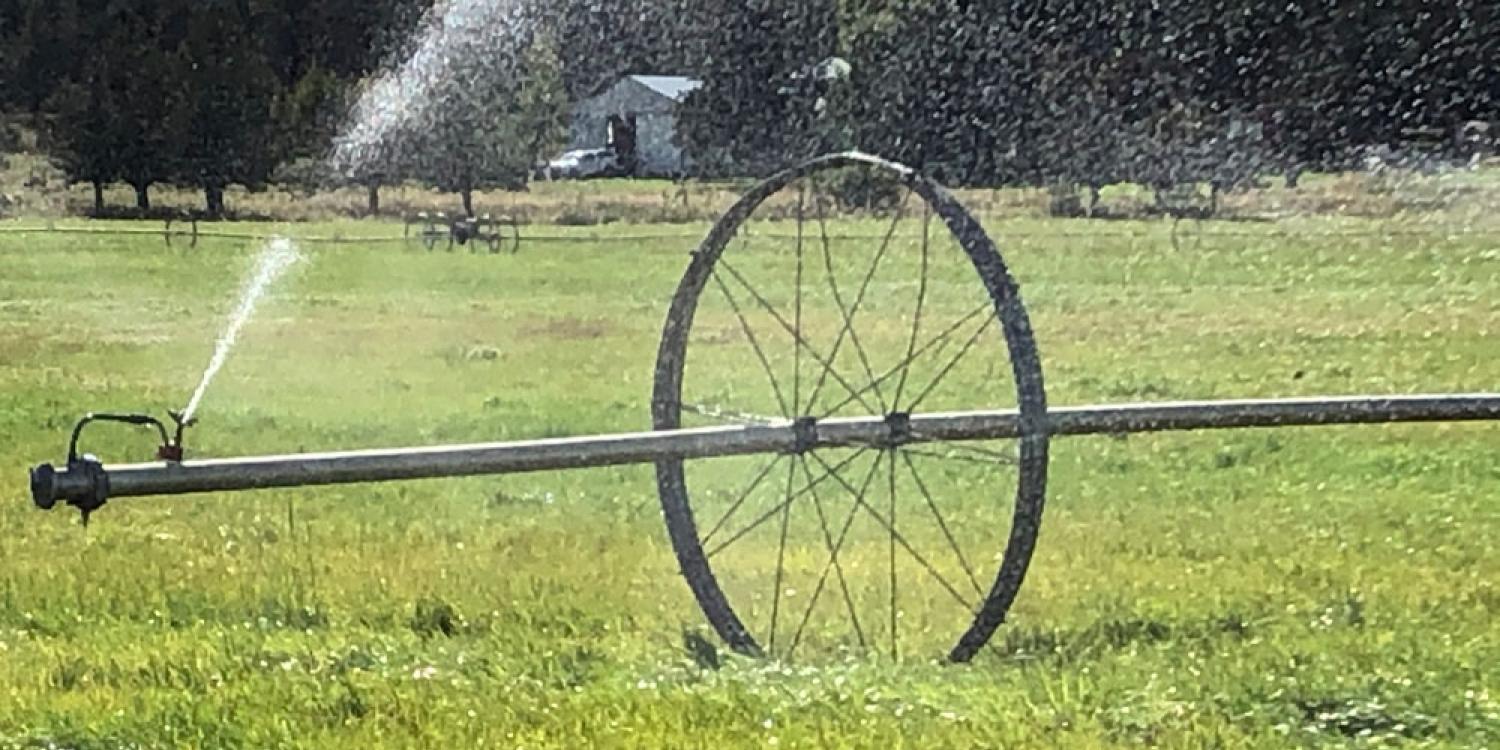
Climate change is a pressing issue for farmers and ranchers around the world. Oregon farmers and ranchers are experiencing irrigation shortfalls due to a rise in temperature, reduced snowpack, increasing urban populations and environmental issues that demand more water for local rivers and less for irrigation. It’s important that the agricultural community and small property owners conserve water when raising livestock and irrigating crops and pastures.
In Crook, Deschutes and Jefferson counties, irrigated pastures cover 46,600 acres with Deschutes County having 42,133 acres. Flood irrigation – the least efficient method in central Oregon – is used on 11,243 of those acres and the method intensifies when pastures are overgrazed. Overgrazing leads to increased irrigation, a reduction in forage production, increased water runoff, loss of topsoil and proliferation of weeds. With efficient water use and decreased overgrazing, irrigation on pastures will decline.
Landowners primarily overgraze their pastures due to a lack of knowledge, time constraints and the cost of converting to sprinkler irrigation systems. In response, Scott Duggan, Oregon State University Extension Service livestock agent, and Mylan Bohle, Extension agronomist, collaborated to provide educational workshops to landowners with irrigated property about the benefits of efficient irrigation practices and livestock grazing.
Duggan and Bohle, who are affiliated with the Central Oregon Agricultural Research and Extension Center in Madras, have organized and taught 17 workshops and field tours in Jefferson, Deschutes and Crook counties since 2016, drawing 210 small-acreage landowners, farmers and ranchers.
As a result, the workshops and popular field tours provided the education needed to make the right decisions about livestock grazing and irrigation in order to conserve water, increase forage production and increase profits. Converting to sprinkler irrigation is a major workshop theme, which results in 20%-30% water savings. In addition, rotational grazing prevents overgrazing and results in increased forage production of 30% or more and reduced water loss.
The goal is that through education, small-acreage landowners will convert to more efficient irrigation systems and eliminate overgrazing of pastures, thereby conserving water for future needs. Partners include Natural Resource Conservation Service and local Soil and Water Conservation districts.